#celtic languages
Photo
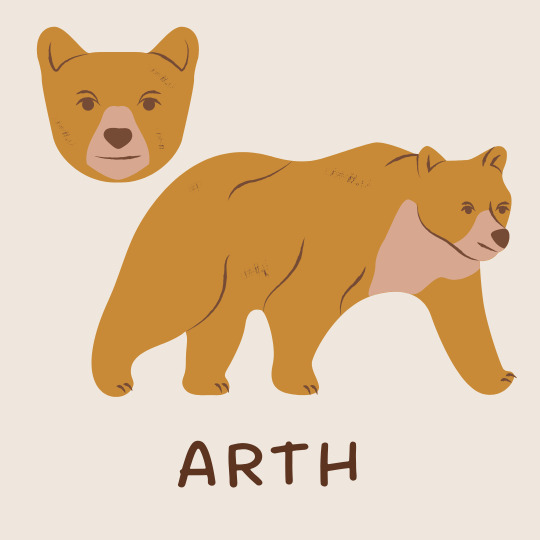

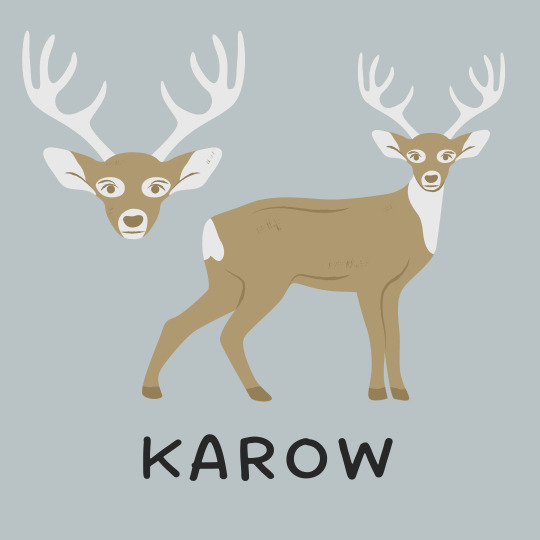

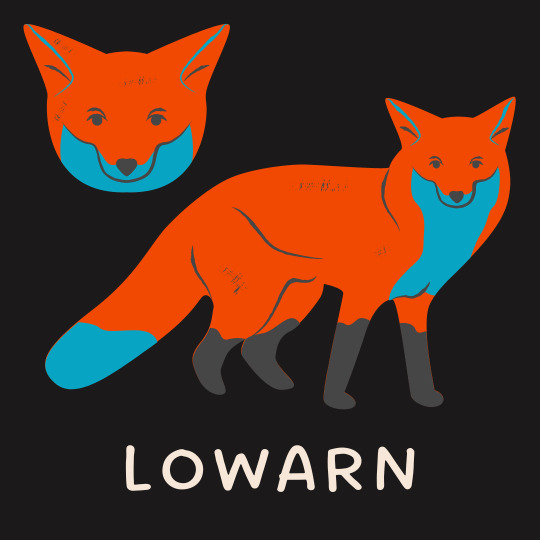
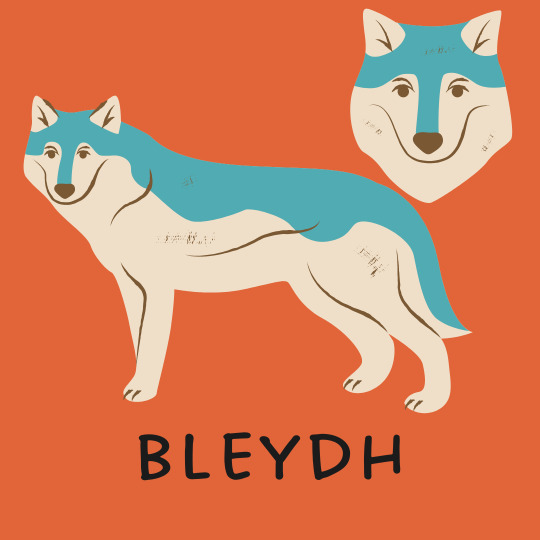
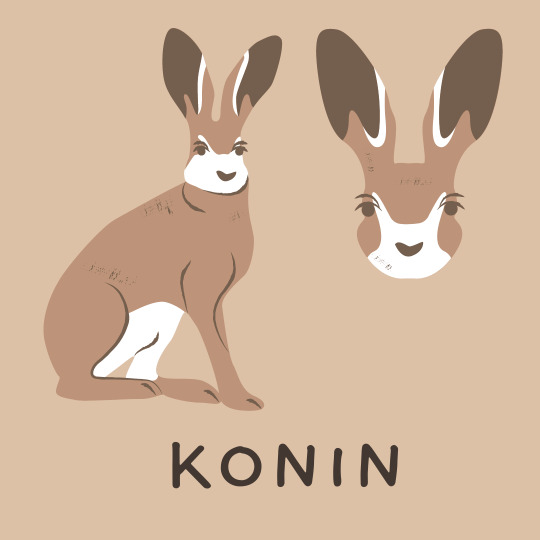
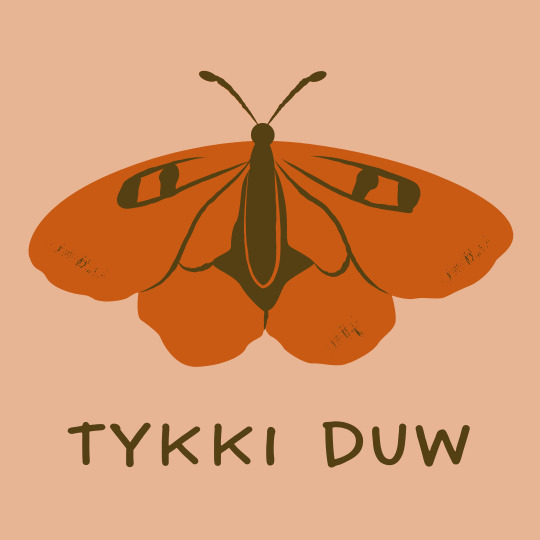
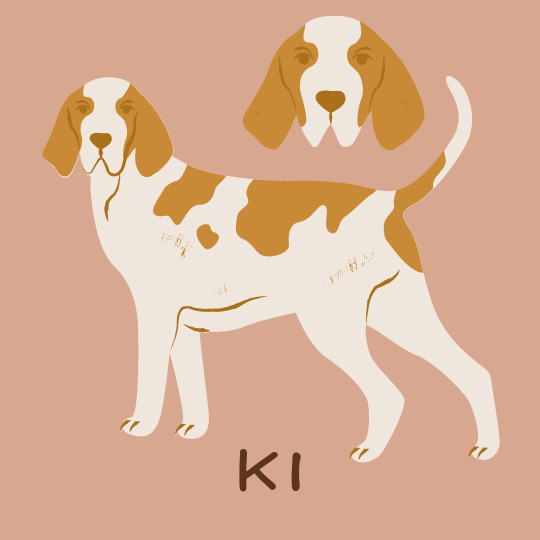
Bestys yn Kernewek “Beasties in Cornish”
#cornish#kernewek#kernowek#teangacha ceilteacha#mo fhoilseachán#languages#langblr#vocabulary#language tumblr#celtic languages
10K notes
·
View notes
Note
Do you know any free and/or online resources to learn Welsh?
Hello @runin-reads Just getting round to this ask now but there's a few things I know of which might help. Followers feel free to add on any more as well!
Resources:
Free Welsh coursebooks from DysguCymraeg available to download on their website
Free collection of Welsh dictionaries available to view on The Internet Archive
Cysill and Cysgeir are free to download here. Cysill is a Welsh grammar checker that checks for correct spelling, mutations etc. Cysgeir is a Welsh dictionary app. Both were developed by Bangor University and are free to download on Windows.
Gweiadur is a free online Welsh dictionary which not only has a comprehensive guide to Welsh words, but also provides example sentences, idioms and conjugation tables.
Followers add on any more if you can think of any!
#cymraeg#welsh#dysgu cymraeg#ask#gofyn#cwestiwn#gymraeg#language learning#welsh language#yr iaith gymraeg#free language resources#language learning resources#celtic languages
573 notes
·
View notes
Text
10 Verbal Nouns in Irish that I very much enjoy
Ag Smúrthacht - prowling, slinking around the place
Ag Airneán - staying up late into the night
Ag Plobarnach - gurgling (of water or porridge)
Ag Santú - ‘greeding’ for something (((also to desire seggsually)))
Ag Slaparnach - trudging around/through shallow water/mud
Ag Spréacharnach - glittering
Ag Rógaireacht - swindling or otherwise engaging in divilment
Ag Pleidhcíocht - fooling around, messin’
Ag Goilliúint - wounding emotionally
Ag Meabhrú - brooding or pondering
warning: 🚨not caighdeán approved🚨 (also these are rough estimations of meanings and there are 100% other verbs which cover these same things please dont break my tibia)
#gaeilge#irish language#brooding#ponderings#language#linguistics#swamp#ireland#irish#northern ireland#insomia#vocabulary#new vocab#porridge#river#prowl#i love the caighdeán pls give my family back#verbs#celtic languages
269 notes
·
View notes
Text

Sun, the word for the blinding nuclear fusion reactor in the sky, stems from the same Proto-Indo-European word as French soleil, Swedish sol, Welsh haul, Irish súil, and Ancient Greek hēlios, whence the prefix helio-. They grew apart by the ravages of time. Here's how.
#historical linguistics#linguistics#language#etymology#lingblr#sanskrit#celtic languages#romance languages#germanic languages#ancient greek
323 notes
·
View notes
Text
So, why do people care so much about Cornish identity? Cornwall’s just a part of England right? Another county with some distinct foods and a funny accent, and they moan about the tourists- when they should be grateful for the money.
Except it’s not.
Whilst the rest of England was forming with a character influenced by Germanic and Norse cultures, Cornwall was holding itself separate as an independent Celtic kingdom, with strong links with Wales, Ireland and Brittany- as well as trading with the wider Mediterranean. For a long time, this kingdom included parts of Devon, but eventually the Celtic people were forced back past the Tamar, and at some point started referring to the land as Kernow, rather than Dumnonia (probably).
Even after the Norman conquest, in part because Cornwall came under the control of the Duke of Brittany, Cornwall retained elements of its unique culture, and certainly its language. There are existing works of literature written in the Cornish language (also called Kernewek) during the medieval period. Due to the active tin mining industry and the Stannary courts, they even had a separate legal system.
All of this continued until the start of the Tudor period, when Henry VII, desperate for money for his wars with Scotland, suspended the operation of the Cornish Stannaries, and imposed greater taxes. This ultimately led to the Cornish Rebellion of 1497. An army of as many as 15000 rebels marched towards Somerset, and ultimately to London, where the rebels met with Henry VII’s armies. Unfortunately, the Cornish lost the ensuing battle, and the rebel leaders were captured, killed and quartered, with their quarters being displayed in Cornwall and Devon. From 1497 to 1508, Cornwall was punished with monetary penalties, impoverishing the people, and land was given to the king’s (English) allies.
However, this wasn’t the death of Cornish culture or dreams of independence from England. Until 1548, Glasney college was still producing literature in Cornish- when it was destroyed in the dissolution of the monasteries, during the English reformation. The following year, 1549, the Cornish rose again- this time to demand a prayer book in their own language, which was still the first (and often only) language of most people in the region. The rebellion was also about the ordinary people vs the landowners, as shown by their slogan “kill all the gentlemen”.
Unfortunately, this rebellion failed too, and this time, it wasn’t just the leaders who were killed, but up to 5,500 Cornishmen- which would have been a significant proportion of the adult male population at the time. These factors combined are widely thought to have contributed to the decline of the Cornish language- although it was still widely in use centuries later.
Despite the failings of these rebellions, the Cornish retained a distinct language and their own culture, folklore and festivals. Mining, farming and fishing meant that the region itself wasn’t economically impoverished, as it was today. Even towards the end of the 1700s, there were still people who spoke Cornish fluently as a first language (including Dolly Pentreath, who definitely wasn’t the last Cornish speaker).
However, over time, the tin mines became less profitable, and Cornwall’s economy started to suffer. Especially in the latter part of the 19th century, many Cornish began to emigrate, especially to places like Australia, New Zealand (or Aotearoa), Canada and South America. Cornish miners were skilled, and were able to send pay back home, and along with the Welsh, influenced culture and sport in many of these places. Many mining terms also have their roots in Cornish language and dialect.
Throughout the 20th Century, Cornwall went through an economic decline- to the point where, when the UK was an EU member, Cornwall was receiving funding intended for only the most deprived regions in Europe. It was one of very few places in the UK to receive this funding- due to the levels of poverty and lack of infrastructure.
Part of the decline was also linked to the decline of historic fish stocks, such as mackerel. In the 70s and 80s, there was a mackerel boom- and large fishing trawlers came from as far away as Scandinavia (as well as Scotland and the north of England) to fish in Cornish waters. The traditional way of fishing in Cornwall used small boats and line fishing. The local fishermen couldn’t compete, and ultimately stocks were decimated by the trawlers. Many more families had to give up their traditional way of life. One could draw parallels here with worldwide indigenous struggles over fishing rights.
Despite this, Cornish communities retained their traditional folklore and festivals, many of which are still celebrated to this day. And throughout the 20th Century, efforts were made to preserve the Cornish language. Although there may not be any first language Cornish speakers left, it is now believed that community knowledge of the language was never truly lost.
Cornwall has since become a popular tourist destination. This brings its own problems- many people want to stay in self-catering accommodation and, more recently, air bnbs. This, alongside second homes, has gutted many Cornish communities. The gap between house prices and average wages is one of the largest in the country. Land has become extremely expensive, which hurts already struggling farmers. Roads can’t cope with the level of traffic. The one (1) major hospital can’t cope with the population in the summer. All of last winter, most Cornish households faced a “hosepipe ban” due to lack of water- yet in the summer, campsites and hotels can fill their swimming pools and hot tubs for the benefit of tourists.
Does this benefit Cornwall? Only about 13% of Cornwall’s GDP comes from tourism. The jobs associated with tourism are often poorly paid and may only offer employment for part of the year. People who stay in Air BnBs may not spend that much money in the community, and the money they pay for accommodation often goes to landlords who live upcountry and aren’t Cornish. Many major hotels and caravan sites are also owned by companies that aren’t Cornish, taking money out of the local economy.
Match this with a housing crisis where it’s increasingly difficult to rent properties long term, and buying a flat or house in Cornwall is out of reach of someone on the average salary and it’s easy to see why people are having to leave communities where their family lived for generations. This damages the local culture, and means centuries-old traditions can come under threat.
All of this feeds into the current situation; it feels like middle class families from London see Cornwall as their playground, and moan about tractors on the road, or the lack of services when they visit. People talk about theme park Cornwall- a place that’s built for entertainment of outsiders, not functionality for those who live here. More widely, a lot of people around the UK have never heard of the Cornish language, or view it as something that’s “extinct” or not worth preserving.
The Cornish are one of Britain’s indigenous cultures, alongside Welsh, Gaelic, Scots, Manx and others. And it’s a culture that’s increasingly under threat economically and culturally. We’ve been clinging on to our homes for a long time, and even now it still feels like we might be forced from them (indeed some of us are). So yes, Cornish people can seem excessively defensive about our identity and our culture- but there’s good reason for it!
#uk politics#cornwall#cornish#kernow#kernewek#celtic languages#minority languages#minority cultures#Cornish history#cornish langblr
265 notes
·
View notes
Text
Making a separate post because it bothers me but "gaelic" is not the name of "the scottish language", it's an umbrella term for the celtic languages of Gaeilge (Irish gaelic) and Gàidhlig, the scottish gaelic, not language.
(Not be confused with the brythonic branches of celtic languages such as Welsh, Brezhoneg, or Cornish.)
#languages#gaeilge#gaidhlig#celtic languages#gaelic#linguistics#yes this is about the hozier garlic post#butchered tongue#minority languages#indigenous languages#celtic nations
267 notes
·
View notes
Text
Irish, Welsh and Scottish Gaelic speakers, I need your help! 🇮🇪🏴🏴
For a piece of academic writing I am working on right now, I was wondering if in the context of those three languages, you have positive or negative examples of:
1) The presence of non-standard dialects digitally or in the media (any content creator you know, any regular speakers on the radio that actively uses a non-standard dialect, or on the contrary, you only encounter standard Irish/Welsh/Gaelic. If you have any example of non-standard writing too, for example in the printed press, I am all ears)
2) Do you speak and/or write a non-standard dialect and have been looked down upon for it by other speakers? If yes what dialect and in what context
3) What do you think about purification practices in which loan-words from English are replaced by new words? Which words do you use? If you study the language formally, which are taught to you?
Thank you, and please reblog!
- A grateful Celtic student
#Irish#Gaelic#Scottish Gaelic#Welsh#gaeilge#cymraeg#Gàidhlig#Ireland#Scotland#Wales#Celtic languages#Minroty languages#Linguistics#Standardisation#Celtic#Celtic studies#Languages#Alba#Mostly for native speakers but also non-native fluent speakers that regularly interact with the language
61 notes
·
View notes
Text
I now have polls and want to find out about language communities on tumblr!
I'm considering doing another with languages like Old Irish and Middle Welsh if any of that crowd see this to see what people have studied coz I'm nosy and sad that I'm not gonna be able to study them at uni and so learning bits of Old Irish through memrise and books lol
632 notes
·
View notes
Text
non-irish people reading 'gailege' and 'gaelic', the names of two completely distinct celtic languages
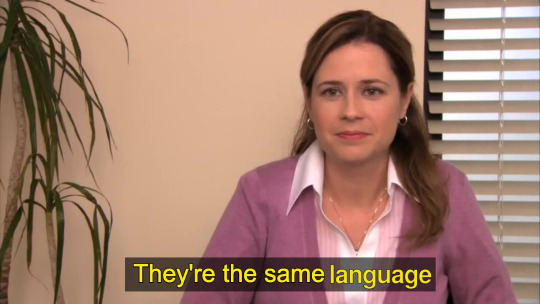
#languages#irish#gailege#gaelic#celtic languages#sorry to the person who posted that poll but c'mon#it's been 12 years since tfa came out#there is no excuse#'google isn't helpful' did you actually google it or did you take fics written by non-irish americans at face value#'what language do they speak in ireland' will get you irish and english at the very top of the screen
150 notes
·
View notes
Text
Because people keep reblogging my shit and tagging it "Irish"
Íf thé áccénts gó thís wáy ít's Írísh
Ìf thèy gò thìs wày ìt's Scòttìsh Gàèlìc
Also Irish underwent spelling reforms a while back which removed a lot of silent consonants, while Gaelic did not
Eg: oíche vs oidhche (night), rí vs rìgh (King), sú vs sùgh (juice)
#and if it looks like an Englishman tried to write Irish it's Manx#gaidhlig#gaelic#scottish gaelic#celtic languages#irish#gaeilge
777 notes
·
View notes
Video
youtube
Here, have a Christmas song in Irish
59 notes
·
View notes
Text
Does anyone have any song recommendations for songs in any of the six celtic languages?
#gaeilge#scots gaelic#welsh#welsh language#cornish#manx#breton#celtic nations#celtic languages#song recommendation#gàidhlig#gaelg#brezhoneg#kernewek
348 notes
·
View notes
Text
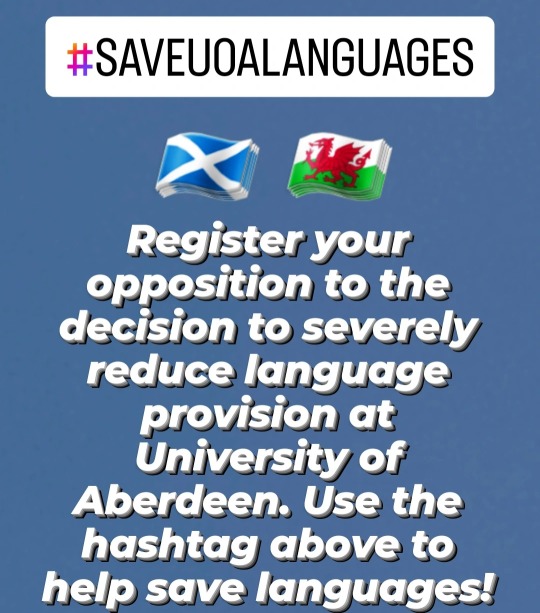
I'm making my opposition to the proposal to severely reduce language provision at the University of Aberdeen known - Scottish Gaelic, an endangered Celtic langauge, is one of the languages at risk of being cut. This would do immense damage to the language revitalisation effort. @uniofaberdeen must reverse this decision and commit to protecting Gaelic and other languages in their institution.
If you feel the same way, you're encouraged to make more posts and stories about the issue to show the University of Aberdeen just how much this decision is frowned upon. Use the hashtag #saveuoalanguages in your posts to get the word out about this.
I'll be travelling tomorrow and wish I could do more right now. But together we can make it known just how unpopular this decision is.
#university of Aberdeen#saveuoalanguages#scottish gaelic#gaidhlig#endangered languages#celtic languages#celtic#gaelic#scotland#scottish#language revitalization#cymblr#celtic studies
123 notes
·
View notes
Text
Irish people in the UK, can any of us speak irish…
So many people in my school and my area are irish or half irish and so few of us even have one word of irish. My friend, A, is half irish half jewish and although her mum is nearly fluent she only has some duolingo irish. N, fully irish and not a word of it. E, half irish half chinese is fluent in chinese but only knows one word of irish. M, half ghanain half irish and again- no irish. Even myself, half irish half romani i only have duolingo knowledge and it upsets me that i cant find anyone who speaks it and i have no native speaker influence due to me not seeing my irish family anymore.
I implore anyone- connection or no connection to the language- to give gaeilge or any celtic/dying language a go.
#gaeilge#irish#languages#celtic#gaelic#scottish#ireland#scotland#welsh#wales#cornwall#cornish#celtic solidarity#celtic languages
57 notes
·
View notes
Photo

The Celtic languages, then and now.
617 notes
·
View notes